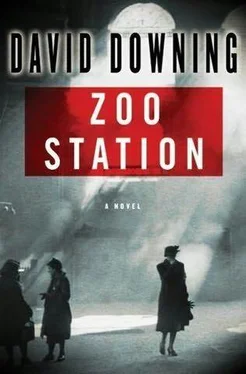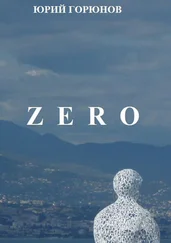David Downing - Zero Station
Здесь есть возможность читать онлайн «David Downing - Zero Station» весь текст электронной книги совершенно бесплатно (целиком полную версию без сокращений). В некоторых случаях можно слушать аудио, скачать через торрент в формате fb2 и присутствует краткое содержание. Жанр: Шпионский детектив, на английском языке. Описание произведения, (предисловие) а так же отзывы посетителей доступны на портале библиотеки ЛибКат.
- Название:Zero Station
- Автор:
- Жанр:
- Год:неизвестен
- ISBN:нет данных
- Рейтинг книги:5 / 5. Голосов: 1
-
Избранное:Добавить в избранное
- Отзывы:
-
Ваша оценка:
- 100
- 1
- 2
- 3
- 4
- 5
Zero Station: краткое содержание, описание и аннотация
Предлагаем к чтению аннотацию, описание, краткое содержание или предисловие (зависит от того, что написал сам автор книги «Zero Station»). Если вы не нашли необходимую информацию о книге — напишите в комментариях, мы постараемся отыскать её.
Zero Station — читать онлайн бесплатно полную книгу (весь текст) целиком
Ниже представлен текст книги, разбитый по страницам. Система сохранения места последней прочитанной страницы, позволяет с удобством читать онлайн бесплатно книгу «Zero Station», без необходимости каждый раз заново искать на чём Вы остановились. Поставьте закладку, и сможете в любой момент перейти на страницу, на которой закончили чтение.
Интервал:
Закладка:
Russell grinned.
Shchepkin offered a wry smile in return. “Well, most of them anyway. Look, we are aware of your situation. You have a German son and a German lady-friend, and you want to stay in Germany if you possibly can. Of course if a war breaks out you will have to leave, or else they will intern you. But until that moment comes-and maybe it won’t-miracles do happen-until it does you want to earn your living as a journalist without upsetting your hosts. What better way than this? You write nice things about the Nazis-not too nice, of course; it has to be credible-but you stress their good side.”
“Does shit have a good side?” Russell wondered out loud.
“Come, come,” Shchepkin insisted, “you know better than that. Unemployment eliminated, a renewed sense of community, healthy children, cruises for workers, cars for the people…”
“You should work for Joe Goebbels.”
Shchepkin gave him a mock-reproachful look.
“Okay,” Russell said, “I take your point. Let me ask you a question. There’s only one reason you’d want that sort of article: You’re softening up your own people for some sort of deal with the devil. Right?”
Shchepkin flexed his shoulders in an eloquent shrug.
“Why?”
The Russian grunted. “Why deal with the devil? I don’t know what the leadership is thinking. But I could make an educated guess and so could you.”
Russell could. “The western powers are trying to push Hitler east, so Stalin has to push him west? Are we talking about a non-aggression pact, or something more?”
Shchepkin looked almost affronted. “What more could there be? Any deal with that man can only be temporary. We know what he is.”
Russell nodded. It made sense. He closed his eyes, as if it were possible to blank out the approaching calamity. On the other side of the opposite wall, his musical neighbors were intoning one of those Polish river songs which could reduce a statue to tears. Through the wall behind him silence had fallen, but his bed was still quivering like a tuning fork.
“We’d also like some information,” Shchepkin was saying, almost apologetically. “Nothing military,” he added quickly, seeing the look on Russell’s face. “No armament statistics or those naval plans that Sherlock Holmes is always being asked to recover. Nothing of that sort. We just want a better idea of what ordinary Germans are thinking. How they are taking the changes in working conditions, how they are likely to react if war comes-that sort of thing. We don’t want any secrets, just your opinions. And nothing on paper. You can deliver them in person, on a monthly basis.”
Russell looked skeptical.
Shchepkin ploughed on. “You will be well paid-very well. In any currency, any bank, any country, that you choose. You can move into a better apartment block…”
“I like my apartment block.”
“You can buy things for your son, your girlfriend. You can have your shoes mended.”
“I don’t…”
“The money is only an extra. You were with us once…”
“A long long time ago.”
“Yes, I know. But you cared about your fellow human beings. I heard you talk. That doesn’t change. And if we go under there will be nothing left.”
“A cynic might say there’s not much to choose between you.”
“The cynic would be wrong,” Shchepkin replied, exasperated and perhaps a little angry. “We have spilled blood, yes. But reluctantly, and in hope of a better future. They enjoy it. Their idea of progress is a European slave-state.”
“I know.”
“One more thing. If money and politics don’t persuade you, think of this. We will be grateful, and we have influence almost everywhere. And a man like you, in a situation like yours, is going to need influential friends.”
“No doubt about that.”
Shchepkin was on his feet. “Think about it, Mr. Russell,” he said, drawing an envelope from the inside pocket of his jacket and placing it on the nightstand. “All the details are in here-how many words, delivery dates, fees, and so on. If you decide to do the articles, write to our press attachй in Berlin, telling him who you are, and that you’ve had the idea for them yourself. He will ask you to send him one in the post. The Gestapo will read it, and pass it on. You will then receive your first fee and suggestions for future stories. The last-but-one letters of the opening sentence will spell out the name of a city outside Germany which you can reach fairly easily. Prague, perhaps, or Cracow. You will spend the last weekend of the month in that city, and be sure to make your hotel reservation at least a week in advance. Once you are there, someone will contact you.”
“I’ll think about it,” Russell said, mostly to avoid further argument. He wanted to spend his weekends with Paul, and with Effi, his girlfriend, not the Shchepkins of this world.
The Russian nodded and let himself out. As if on cue, the Polish choir lapsed into silence.
Russell was woken by the scream of a locomotive whistle. Or at least, that was his first impression. Lying there awake all he could hear was a gathering swell of high-pitched voices. It sounded like a school playground full of terrified children.
He threw on some clothes and made his way downstairs. It was still dark, the street deserted, the tramlines hidden beneath a virginal sheet of snow. In the train station booking hall across the street a couple of would-be travelers were hunched in their seats, eyes averted, praying that they hadn’t strayed into dangerous territory. Russell strode through the unmanned ticket barrier. There were trucks in the goods yard beyond the far platform, and a train stretched out past the station throat. People were gathered under the yellow lights, mostly families by the look of them, because there were lots of children. And there were men in uniform. Brownshirts.
A sudden shrill whistle from the locomotive produced an eerie echo from the milling crowd, as if all the children had shrieked at once.
Russell took the subway steps two at a time, half-expecting to find that the tunnel had been blocked off. It hadn’t. On the far side, he emerged into a milling crowd of shouting, screaming people. He had already guessed what was happening-this was a kindertransport, one of the trains hired to transport the ten thousand Jewish children that Britain had agreed to accept after Kristallnacht. The shriek had risen at the moment the guards started separating the children from their parents, and the two groups were now being shoved apart by snarling brownshirts. Parents were backing away, tears running down their cheeks, as their children were herded onto the train, some waving frantically, some almost reluctantly, as if they feared to recognize the separation.
Further up the platform a violent dispute was underway between an SA Truppfьhrer and a woman with a red cross on her sleeve. Both were screaming at the other, he in German, she in northern-accented English. The woman was beside herself with anger, almost spitting in the brownshirt’s eye, and it was obviously taking everything he had not to smash his fist into her face. A few feet away one of the mothers was being helped to her feet by another woman. Blood was streaming from her nose.
Russell strode up to the brownshirt and the Englishwoman and flashed his Foreign Ministry press accreditation, which at least gave the man a new outlet for his anger.
“What the fuck are you doing here?” the Truppfuhrer shouted. He had a depressingly porcine face, and the bulk to go with it.
“Trying to help,” Russell said calmly. “I speak English.”
“Well then tell this English bitch to get back on the train with the kike brats where she belongs.”
Russell turned to the woman, a petite brunette who couldn’t have been much more than twenty-five. “He’s not worth screaming at,” he told her in English. “And it won’t do you any good. In fact, you’ll only make matters worse.”
Читать дальшеИнтервал:
Закладка:
Похожие книги на «Zero Station»
Представляем Вашему вниманию похожие книги на «Zero Station» списком для выбора. Мы отобрали схожую по названию и смыслу литературу в надежде предоставить читателям больше вариантов отыскать новые, интересные, ещё непрочитанные произведения.
Обсуждение, отзывы о книге «Zero Station» и просто собственные мнения читателей. Оставьте ваши комментарии, напишите, что Вы думаете о произведении, его смысле или главных героях. Укажите что конкретно понравилось, а что нет, и почему Вы так считаете.












